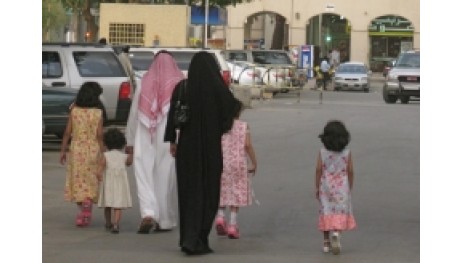Saudi Health Interview Survey finds high rates of chronic diseases in the Kingdom of Saudi Arabia.

Obesity, diabetes, high blood pressure, high cholesterol, and smoking are among the leading issues that affect a growing number of people in Saudi Arabia, according to a survey by the Kingdom of Saudi Arabia and the Institute for Health Metrics and Evaluation (IHME) at the University of Washington.
The Saudi Health Interview Survey covers all 13 regions of the Kingdom of Saudi Arabia and uses a representative sample of adults aged 15 and older.
“Non-communicable diseases are a major issue and will increase unless we all work together to address them. The Ministry will begin detection campaigns to increase diagnosis and ensure that those who are diagnosed are controlling their conditions,” said His Excellency Dr. Abdullah A. Al Rabeeh, Minister of Public Health. “The Ministry provides free medical care for those who are ill but our goal is to prevent diseases.”
The prevalence of obesity, as measured by body mass index (BMI) over 30 kg/m2, was 28.7%. It was higher among females than males, 33.5% and 24.1%, respectively. The prevalence increased by age and was highest among those aged 55 to 64, with levels of 48.0%. Morbid obesity, defined as a BMI greater than 40 kg/m2 was 2.5% in men and 4.7% in women.
Almost half of women are physically inactive, while 29% had low levels of physical activity. For men, 23% are physically inactive, and the same percentage had low levels of physical activity. At the same time, only 7.6% of adults consumed more than five daily servings of fruits or vegetables.
“The survey findings will help guide our planning for better control of preventable risk factors,” said Dr. Ziad A. Memish, Deputy Minister for Public Health. “Improving diet and increasing physical activity will be critical to these efforts.”
The total prevalence of diabetes was 14.8% for males and 11.7% for females in 2013. It increased with age and ranged from 7.8% among those aged 25 to 34 to 50.4% among those aged 65 and older. Borderline diabetes was present in 17% (1.17 million) of men and 15.5% (0.95 million) of women. Among Saudi men, 1 million are diabetic, 583,000 are on medication for diabetes, and 230,000 have uncontrolled diabetes. For women, 720,000 are diabetic, and 367,000 are on medication, while 167,000 have uncontrolled diabetes.
The prevalence of hypertension was 17.7% for males and 12.5% for females. It increased with age and was highest among those aged 65 or older (65.2%). Borderline hypertension was noted in 46.5% (3.04 million) of men and 34.3% (2.18 million) of women. About 1.16 million Saudi men and 795,000 Saudi women, or 15.1% combined, are hypertensive. About 500,000 men and 415,000 women have been diagnosed with hypertension, with 383,000 men and 335,000 women on medication. However, 220,000 men and 170,000 women had uncontrolled blood pressure.
The prevalence of hypercholesterolemia was 9.5% for males and 7.3% for females. It increased by age and was highest among those aged 65 or older (28.7%). About 658,000 Saudi men and 448,000 Saudi women are hypercholesterolemic. Borderline hypercholesterolemia was found in 19.5% (1.25 million) of men and 20.6% (1.18 million) of women. Almost 215,000 men and 116,000 women are on medication, but only 7.4% of them have uncontrolled hypercholesterolemia.
Smoking is also on the rise among men. Overall 21.5% of men currently smoke. Of all Saudi males, 20.9% smoke shisha.
Despite the increase of chronic disease and smoking, the survey found that three-quarters of Saudis reported never having a routine medical checkup.
“It’s surprising in a country with free and widely accessible healthcare that people don’t take advantage of preventive care and only see their doctors when they’re ill,” said Dr. Ali Mokdad, Professor of Global Health at IHME. “In the US, there’s an ongoing debate about providing universal health coverage, but Saudi Arabia has it.”
The Saudi Health Ministry’s collaboration with IHME has generated several innovative approaches to addressing the country’s health challenges. The Ministry plans to create a census for every clinic catchment area in order to assess community health needs to provide better services and encourage early detection of disease. A center of excellence for health metrics will be created within the Ministry.
ABOUT US
Radico Hebatulla International was established in India in 1978 and is approved by Ministry of External Affairs, Government of India, New Delhi, Vide Reg. No.B-1958/DEL/PART/1000+/5/10136/2022
